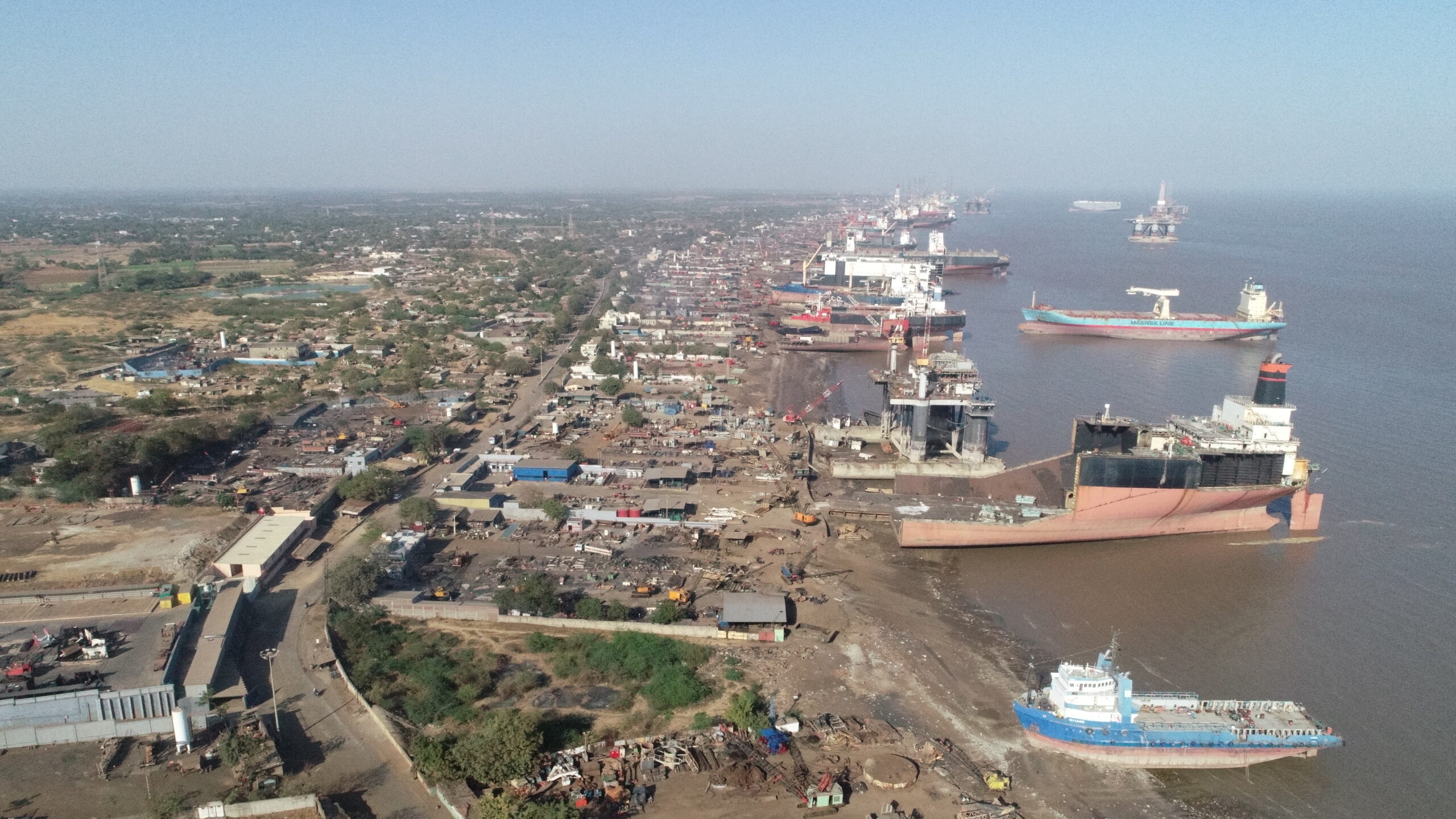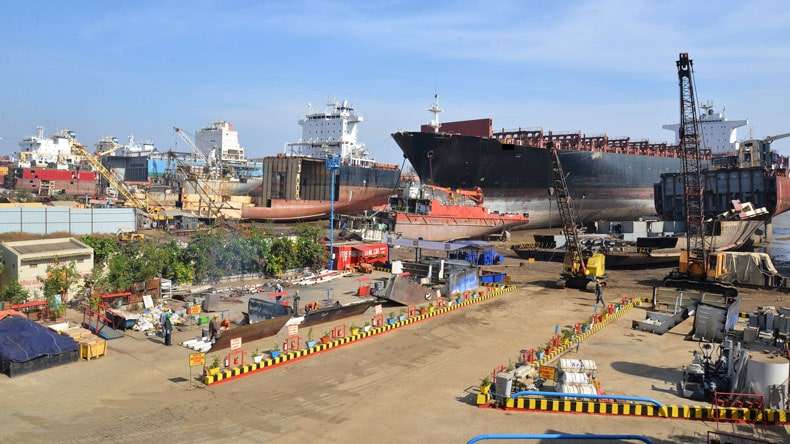Ship Recycling: Mixed Signals and Global Economic Outlook
Here’s a breakdown of the latest happenings in the ship recycling industry, along with some insights into the global economic forecast:

Market Trends by Region:
- India: The Indian ship recycling market is experiencing positive momentum with stable prices. This trend is expected to continue as long as there’s a steady supply of ships for scrapping and no major disruptions occur on the global political scene.
- Bangladesh: After the Eid holidays, activity in Bangladeshi shipyards has picked up slightly. There’s been an increase in inquiries for recycling services, but clearer market trends are expected to emerge in the coming week.
- Pakistan: The Pakistani market is currently quieter compared to its neighbours. Recycling facilities in Pakistan are offering lower prices for ships compared to India and Bangladesh.
- Turkey: The Turkish market remains stable. However, an increase in the supply of containers for scrapping might influence future pricing and overall demand in the recycling sector.
Global Sanctions on Iran:
The European Union, along with the US, Canada, and the UK, have imposed stricter sanctions on Iran in response to its recent attack on Israel. These sanctions target individuals and companies involved in Iran’s drone and missile production. This move signifies a unified Western response against Iran’s aggressive actions.
Global Economic Outlook:
The International Monetary Fund (IMF) predicts steady global economic growth of 3.2% in 2024 and 2025, matching the growth rate observed in 2023. Developed economies are expected to see a slight increase in growth, from 1.6% in 2023 to 1.8% by 2025. However, this will be offset by a slight slowdown in emerging and developing economies, where growth is projected to decrease from 4.3% in 2023 to 4.2% in the following years. The long-term global growth forecast is at 3.1%, marking the lowest in decades.
On the inflation front, global inflation is expected to decline from 6.8% in 2023 to 4.5% by 2025. Developed economies are likely to achieve their inflation targets sooner than emerging and developing economies. Core inflation, which excludes volatile food and energy prices, is expected to decrease at a slower pace over the same period.
Additional Observations from Banchero Costa:
Shipbroker Banchero Costa reports a quieter week in terms of significant ship sales across the Indian subcontinent. However, demand for ship recycling remains strong in the three main markets: India, Bangladesh, and Pakistan. Interestingly, Indian recyclers, who previously focused solely on ships that met the Hong Kong Convention (HKC) standards, have recently become more aggressive in acquiring ships for scrapping, creating a more competitive environment.
Determining the exact market price for ship recycling is currently difficult. Many recent sales have been conducted on an “as is, where is” basis, which means the buyer takes the ship in its current condition at the present location. This approach is often used for older ships with limited appeal to recyclers.
While prices exceeding $600 per Light Displacement Tonne (LDT) are unlikely to be reached anytime soon, it’s interesting to speculate on the pricing for a standard Handymax bulk carrier (around 10,000 LDT) delivered to a shipyard in the Indian subcontinent under current market conditions.
In essence:
The ship recycling market is experiencing mixed trends across different regions. While India and Bangladesh show positive signs, Pakistan’s market is quieter. Global economic growth is expected to remain steady, with inflation on a downward trajectory. The focus on environmentally friendly ship recycling practices continues, as seen with India’s stricter approach.
Disclaimer:
Hey there! Just a heads-up: the stuff you find on this website is meant for general info only. We try our best to keep it accurate and up-to-date, but we can’t guarantee it’s always perfect. We’re not making any promises about how complete, accurate, reliable, suitable, or available the info, products, or services on here are for your needs.
So, if you decide to rely on any of this info, just know it’s at your own risk. We’re not responsible for any losses or damages that might happen because of using this website, whether it’s indirect, consequential, or anything else. That includes things like losing data or profits. Thanks for understanding!
Author: shipping inbox
shipping and maritime related web portal








